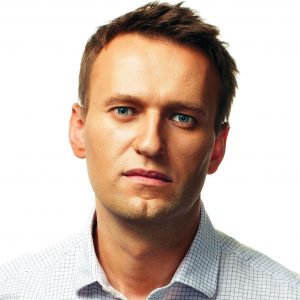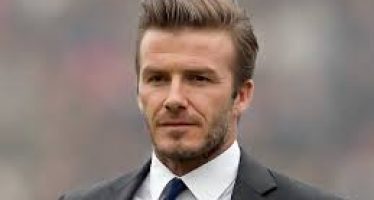Alexei Navalny: Unwilling to Play Along
 He is the man Vladimir Putin is said to fear the most. Alexei Navalny (41), a lawyer by trade and an activist by choice, wants to unseat and replace the Russian president. However, a five-year suspended sentence for embezzlement, squashed by the Supreme Court late last year but reinstated after a review by the Leninsky district court of Kirov, can prevent Mr Navalny from running in next year’s presidential election.
He is the man Vladimir Putin is said to fear the most. Alexei Navalny (41), a lawyer by trade and an activist by choice, wants to unseat and replace the Russian president. However, a five-year suspended sentence for embezzlement, squashed by the Supreme Court late last year but reinstated after a review by the Leninsky district court of Kirov, can prevent Mr Navalny from running in next year’s presidential election.
Mr Navalny denies the charge – relating to the alleged theft of state-owned timber – and called the case brought against him “a politically motivated farce”. The European Court of Human Rights agreed that Mr Navalny had not received a fair trial and ordered the Russian state to award €56,000 in compensation and damages. Though the 2013 verdict was duly annulled, a retrial in Kirov, an industrial city and trading hub some 800km east of Moscow, again found Mr Navalny guilty and reimposed the suspended sentence.
Mr Navalny has seen the insides of numerous Russian courtrooms. He has also been arrested repeatedly and spent time in jail on charges related to political protests. In March, a Moscow court again slapped a fifteen-day prison sentence on Mr Navalny for resisting arrest during a rally against the endemic corruption amongst the governing elite.
During his trial, the defendant expressed surprise at the high turnout of mainly young people. Earlier, pundits had dismissed Mr Navalny’s protest movement as only a minor irritant, arguing that the Russian public remained politically apathetic. The protests scaled up significantly after Mr Navalny released a 50-minute documentary detailing the complex web of dubious charitable institutions that was reportedly set up by oligarchs to funnel bribes to Prime Minister Dmitri Medvedev and his extended clan. After its online release, the video attracted more than thirteen million viewers.
Fearful of turning the crusader into a martyr, prosecutors have so far refrained from demanding longer prison sentences for the recalcitrant lawyer, handing out fifteen-day stints instead. During one of his previous stays in jail, Amnesty International recognised Mr Navalny as a prisoner of conscience.
“It takes plenty courage, and a fair bit of gumption, to challenge Russia’s powers-that-be.”
Despite repeated attempts, Mr Navalny has been unable to create a political party to bundle opposition forces and provide a platform for his 2018 presidential bid. Regulatory obstacles, bureaucratic non-cooperation, and an unhelpful judiciary have stopped Mr Navalny’s Peoples’ Alliance, later renamed Progress Party, from obtaining official recognition. That party has now joined other fledging opposition groups coalescing around the RPR-PARNAS party which is fully accredited. RPR-PARNAS traditionally favours a “European choice” not dissimilar from what inspired the 2014 Euromaidan protesters in Kiev. Barely one year after the Ukrainian Revolution, RPR-PARNAS co-chair Boris Nemtsov was shot dead on a Moscow street.
Opposing the government of Vladimir Putin is both dangerous and, perhaps, futile. On April 27, unknown assailants sprayed Brilliant Green, a toxic dye used for the colouring of silk and wool, in Mr Navalny’s face causing him to lose 80% of vision in his right eye. Brilliant Green, possibly mixed with other substances, has been used in a number of splash-attacks on politicians and journalists critical of the Putin Administration. Mr Navalny received permission from the Kirov court to travel to Spain for medical treatment.
Upon his return, Mr Navalny intends to resume the fight to secure a place on the 2018 ballot. Kremlin observers generally agree that the suspended sentence is unlikely to prove an impediment, if for no other reason than that Mr Putin’s United Russia – a catch-all party which claims to represent indigenous conservatism – could use some serious opposition.
The swift annexation of Crimea in March 2014 boosted the president’s popularity rating which since has remained remarkably high. As the power party of choice, almost any candidate nominated by United Russia is likely to win the vote. President Putin is constitutionally barred from seeking a second consecutive six-year term in office.
Mr Navalny possesses both required qualities. He has also shown an impressive ability to rally young professionals to his anti-corruption cause – people who in their lives have known no other leader than President Putin. Between the lines, Mr Navalny is being asked legitimise the political status quo by offering a token threat – one with clearly outlined boundaries. Pushing the envelope by galvanising opposition forces carries with it great peril. However, Mr Navalny seems unimpressed and unwilling to play along.
You may have an interest in also reading…
Anna Radulovski: ‘Mompreneur’ Shares Struggles and Wins: is This the Next Unicorn in the Making…?
Anna Radulovski doesn’t just want to make money — she wants to make impacts. Born and raised in the Ukraine,
Tough Operator: Dr. Ngozi Okonjo-Iweala
Harvard educated Dr. Okonjo-Iweala, a recent candidate for presidency of the World Bank, is one of the world’s most respected
The Spotlight on David Beckham
One of the best known faces on the planet, David Beckham, 38 years old, became an Image Ambassador for Chinese

















































































